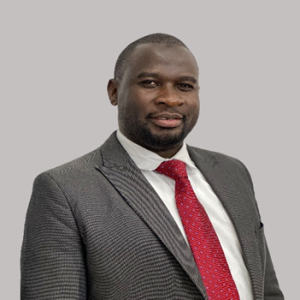A CASE FOR ARBITRATION AS THE APPROPRIATE MECHANISM FOR RESOLUTION OF CONSTRUCTION DISPUTES
By Morris Muriu[1]
The increased economic growth goes hand in hand with an increased demand for infrastructure that would ultimately enable or sustain the stable economic growth. Africa has seen continuous activity in the past few years driven by private and foreign investment in major infrastructure projects in the transport, oil & gas, and renewable energy sectors in particular. Kenya and East Africa as a whole have been significant contributors to this. This is believed to be just the beginning of a long-term development process in many countries in the region to promote trade and unleash Africa’s huge productive potential.
Some examples of such projects in Kenya include: (1) the USD 25 billion Lamu Port and Lamu–South Sudan–Ethiopia Transport Corridor (LAPSSET), East Africa’s largest integrated infrastructure project that aims to connect countries in the region, including through intraregional highways, railway lines and airports; (2) the standard gauge railway project from the port of Mombasa to Nairobi at a cost of USD 3.6 billion; and as well as the Lake Turkana Wind Power Project being the largest windfarm on the continent. Some examples within the East Africa region include some oil and gas projects such as Tanzania’s USD 30 billion Likong’o–Mchinga Liquefied Natural Gas Project which is the most valuable energy infrastructure project in the region, as well as the proposed USD 4 billion LNG plant in Djibouti to process and export natural gas from Ethiopia.
The significant foreign investment associated with such major construction projects increases the likelihood of the occurrence of international disputes, including disputes relating to interpretation of contracts, as well as those arising directly from the completion of the projects. Such disputes require a resolution mechanism that is effective and builds confidence to the foreign partners for a fair resolution.
Disputes arising in such construction and infrastructure projects are not unique to the African continent alone, as they often occur across the world. This is largely as a result of common factors that surround such international disputes. To start with, disputes relating to payment are quite common since funding is always at the heart of major construction projects. Making the required payments as and when they fall due, is an overarching principle in construction projects. As such, it easily becomes a source of conflict when delays or issues relating to payments arise. This is often the case in disputes relating to government projects, where the available funds are dependent upon the state of the government’s budget, and often subject to various bureaucratic requirements to secure the release of funds – especially in circumstances where projects are running over their approved budgets.
Another source of conflict relates to lack of sufficient understanding of local conditions impacting the project, particularly where a foreign party is unfamiliar with a particular territory. Different foreign parties end up making various assumptions based on previous projects and jurisdictions they have experience in, for instance in developing budgets and estimations for the project in the procurement or execution stages. Some common assumptions that may substantially differ from other jurisdictions include local regulations and policy surrounding the project, as well as the overall nature of doing business in these regions.
It is upon reflection on the factors above, as well as the underlying position that major construction projects often involve parties from different jurisdictions at any given moment, that make a case for the use of arbitration as a suitable dispute resolution mechanism.
To date, arbitration remains the preferred method of dispute resolution around the world, and particularly in instances where parties from different jurisdictions are involved. This is perpetuated by: (1) the enforceability of arbitral awards across the globe, thanks to the ratification of the Convention on the Recognition and Enforcement of Foreign Arbitral Awards (the New York Convention), which has the advantage of avoiding instituting suits in different jurisdictions as most African States have embraced the Convention, with 42 out of the 54 States being signatories to the Convention; (2) the option of avoiding local courts which gives foreign parties a greater degree of certainty regarding the outcome of any future disputes, as opposed to the uncertainty that comes with unfamiliar laws and procedures; and(3) the finality of arbitral awards which in turn avoids endless proceedings on the matter. This is a crucial factor for a foreign investor in deciding where to invest in a particular jurisdiction as it provides confidence that any issues arising will be settled sufficiently and effectively.
In addition to this, most construction projects involve complex structures relating to financing and construction aspects, which may require specific knowledge in the industry. This is particularly the case where public private partnerships are involved, where governments partner with the private sector in undertaking infrastructure projects, including different financiers and contracts to ensure the project is undertaken in the most efficient way possible. Being such a niche sector, it would be preferable to seek the assistance of third-party experts who have expertise in the field and who not only understand the structures involved but are also aware of the realities surrounding such projects. It is highly unlikely that local courts would have such expertise, leaving arbitration as a more practical option especially where complex structures are involved.
Adjudication is also a form of Alternative Dispute Resolution mechanism that has been increasingly used due to its speedy resolution and long-standing experience in construction disputes. However, the decision of an adjudicator is binding but not final, in that a party may choose to challenge it. In addition, the major construction and infrastructure projects in Kenya, East Africa and Africa as a whole tend to involve foreign parties, and involve other structures tied into the projects, including different investment and financing models.
In this regard, the use of arbitration is increasingly being recognized as a suitable dispute resolution mechanism in the construction industry. Some jurisdictions, including Kenya, recognize its benefits and have gone ahead to implement modern legislation that favors arbitration as a dispute resolution mechanism. For example, Kenya’s revised Public Private Partnership Act, 2021 specifically requires the use of arbitration for purposes of resolving disputes resolution.
Separately, there is a proliferation of African arbitration centers and a push by African governments for utilization of the African centers as opposed to use of foreign arbitral centers, thus signaling a growing trust in African centers and institutions. More and more Africa-related disputes will increasingly be heard in Africa-based arbitration centers, rather than international centers in distant cities abroad. For instance, the Kigali International Arbitration Center has gained recognition both locally and internationally as a leading institution in the region, with at least 192 cases being registered with the institution to date. Likewise, the Nairobi International Arbitration Centre was also established to promote the use of the commercial ADR.
These factors set the stage to have arbitration as an ideal choice in resolving construction disputes amongst other forms of disputes. Having structures in place in favour of a dispute resolution process that has continuously proven to be effective encourages investors and financiers to participate more in such construction and development projects in the region.
In effect, East Africa and Africa as a whole should provide enough support for this through the relevant domestic legislative reforms to promote the effective and efficient proceedings, while at the same time continue to push for a growing body of sophisticated local arbitration practitioners in these fields. Parties going into in such projects should also promote the use the capable arbitral institutions in the region, as solutions tailored for the region.
[1] An Advocate of the High Court of Kenya with experience in construction contracts and disputes.
This article was edited by Laura Lusiji – General Editor for the Africa Construction Law blog


















